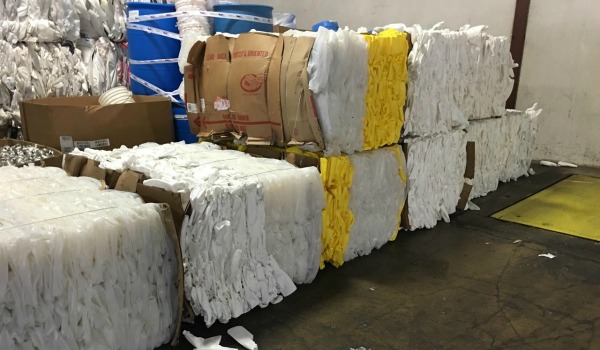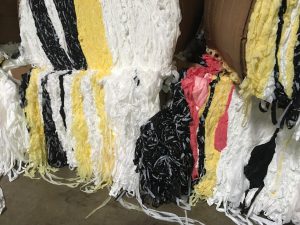News
Best Practices for Industrial Plastics Recycling

In today’s manufacturing and distribution environments, waste is unavoidable. But waste doesn’t have to mean lost value. With the right systems in place, industrial plastics recycling can lower disposal costs, generate rebates, and help your company meet its sustainability goals.
At iSustain, we work with facilities nationwide to design recycling programs that work in the real world. Here are four best practices that can make a measurable difference.
Four Tips for Optimizing Your Industrial Plastics Recycling Program
(1) Sort plastics by type and value.
Not all plastics are created equal. To maximize returns, materials need to be recycled according to resin or chemical composition. While some recyclers accept commingled plastics, mixing them usually lowers the overall value and reduces potential rebates.
A practical first step is to identify the plastic types your facility generates in the highest volumes and work with your recycling partner to separate the most valuable streams. Even a small change in sorting can make a big impact on both cost savings and sustainability metrics.

(2) Source separate whenever possible.
The closer you capture recyclables to their point of generation, the cleaner and more valuable they will be. For example, if your packaging line consistently produces film waste, set up collection bins directly at that line.
This approach reduces contamination, minimizes extra labor for sorting, and ensures more material is recycled instead of landfilled. It’s one of the simplest ways to improve the efficiency of an industrial plastics recycling program.
(3) Minimize contamination.
Contamination is one of the biggest challenges in recycling. Labels, food residue, and mixed materials all reduce the value of your plastics and can damage recycling equipment. While it’s not always possible to remove every contaminant, even small improvements, like wiping or separating cleaner streams,can pay off.
Cleaner recyclables mean higher rebates, better safety for workers, and stronger relationships with your recycling provider. Ultimately, it ensures that more plastic is recovered and reused in new manufacturing.
(4) Invest in a baler.
Plastics are bulky and lightweight, which makes transportation inefficient if shipped loose. Since rebates are based on weight, moving unbaled plastics often means paying to haul air.
Baling compresses plastics into dense, uniform loads that are easier to store, ship, and sell. For example, a vertical baler can compress film into a 60″ x 30″ x 48″ bale weighing about 800 pounds. Without baling, the same amount of plastic would take up more than 10 Gaylords, driving up handling and freight costs.
Companies that invest in balers often save thousands of dollars annually while strengthening their overall recycling programs.
Partner with iSustain for Industrial Plastics Recycling Solutions
These best practices are just the start. Every facility is different, and the right industrial plastics recycling program depends on your materials, space, and goals. iSustain helps companies nationwide capture more value from their plastics, reduce landfill waste, and meet ESG commitments.